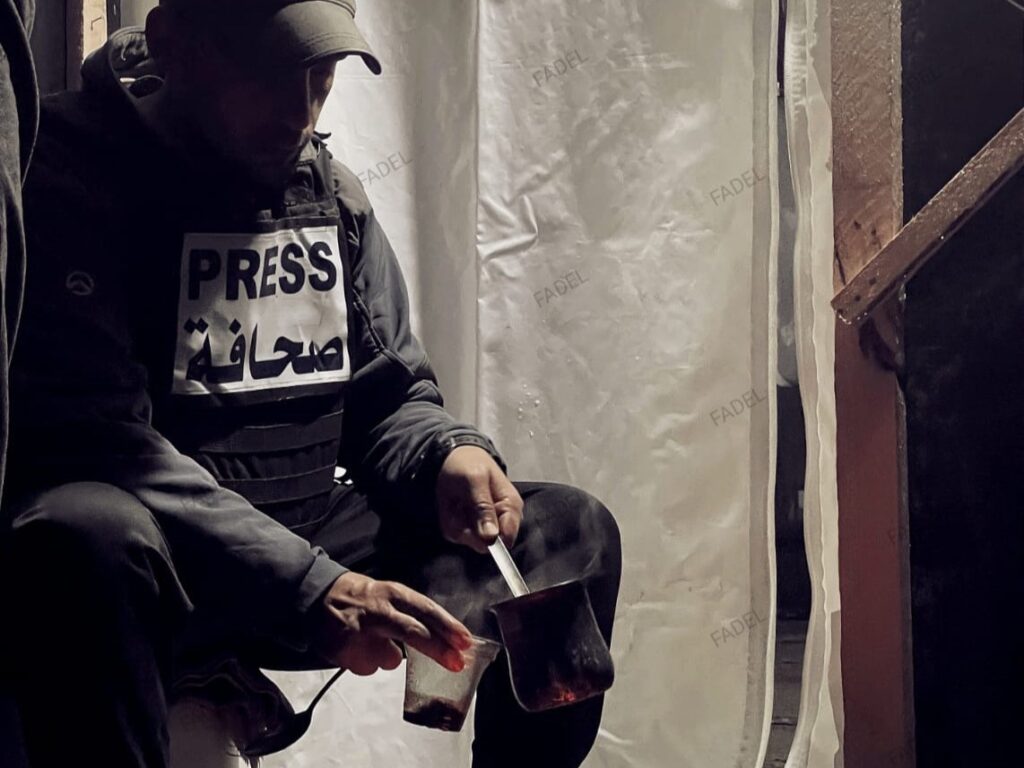Living in Gaza: A photographer’s story of war, loss, and survival
My friends and I enjoyed watching the sunset over the sea. At my favorite place in the world, a resort called Nakheel Village, I took deep breaths, filling myself with the joy that emanated from the atmosphere. If I was sad or angry, setting foot in that place completely changed my mood. Now, when I walk the resort, nothing remains.
- 2 years ago
June 14, 2024
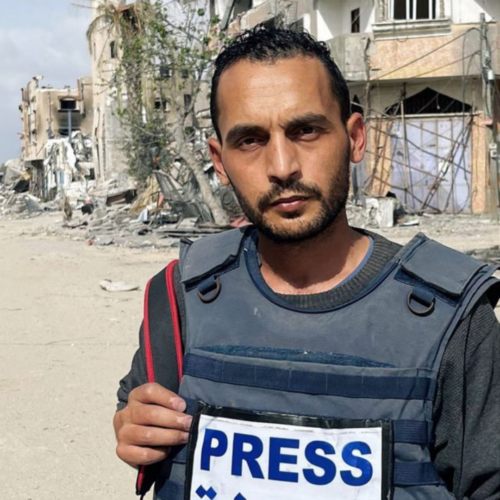
NUSEIRAT, Gaza — I lived my whole life in Gaza, a place I love despite its current devastation. Almost all my family and friends have been killed. My favorite places, reduced to rubble, leave me as a shadow of my former self. As a photographer, I no longer possess a camera or cell phone. My belongings and dreams of a happy life have been left behind. All around me, I see pain, hunger, and death. I feel like we have no future.
Explore more stories about the Israel-Palestine conflict at Orato World Media.
A life once shaped by occupation now reflects a nation in ruins
At four years old, I understood the meaning of occupation. One afternoon while playing, a group of young Israeli soldiers broke into my house. As a small child, they seemed huge and terrifying, breaking everything in their path without a thought. Crying in fear, I asked my mother what was happening. That was the first of many encounters with barbarism.
In my childhood, I closely watched my father, who recorded all the beautiful moments of our life with his camera. I felt a deep desire to follow his path. Looking at pictures of us happy, a smile settled on my face. The photographs felt like moments saved forever, allowing me to relive them. I believed a picture speaks louder than words, so I eventually became a photographer.
Today, those images become the only remaining witnesses to the massacre that began with occupation. They seem like more powerful evidence than anything else. Despite growing up this way, until recently, my life in Gaza was beautiful. On any given day, I woke up and went to work photographing produce. In between, I made time to take artistic photos, inspired by whatever I came across along the way.
My friends and I enjoyed watching the sunset over the sea. At my favorite place in the world, a resort called Nakheel Village, I took deep breaths, filling myself with the joy that emanated from the atmosphere. If I was sad or angry, setting foot in that place completely changed my mood. Now, when I walk the resort, nothing remains. The pools, the halls, and everything sits in ruins. Where children’s laughter once filled the air, you hear sirens and bombings.
War erupts: A night of missiles and loss in Gaza
On October 7, 2023, in the middle of the night, I was at home praying. During a break, I sat down to drink some coffee. Suddenly, I heard loud explosions and went outside to see what was happening. I looked up and saw the sky covered with missiles. “The war has started,” I thought. I didn’t fully understand what was happening, but I felt anxious and agitated.
My first reaction was to warn some friends who pick olives on their farmland. They used to go in the early morning, so I called them immediately to ask them not to go to work, and to take shelter instead. Next, I ran to my room, grabbed my camera, and went outside to take pictures.
At that moment, one of my friends went to do the same at the border, where an Israeli sniper killed him. The day ended with me saying goodbye to my friend. Stunned, I returned home, trying to understand what happened and how it had happened so fast. It became a horrific day. Little did I know, we faced a worsening situation in the weeks that followed.
The shelling continued in a fierce and gruesome manner. The residential square in our neighborhood turned to rubble in seconds, and the attack killed 60 members of my family. Aunts, uncles, cousins, nieces, and nephews were snuffed out forever. Standing nearby, I saw the missiles descending on them. Their houses collapsed after an intense explosion. I hurt my foot and shoulder, but without thinking, I ran towards them.
Aftermath of bombings: attack reduced my family to mutilated pieces of flesh
When I arrived, I saw my aunt’s husband lying on the rubble, breathing his last breath. I desperately dug around, trying to rescue someone, but found only my cousin’s son, my uncle, his son, and his wife—all dead. There were only pieces of my mutilated family left. Some remain missing under the rubble. I can never forget that scene. When I close my eyes, the darkness transports me back to that moment.
A month into the war, the Israeli army completed its operations in northern Gaza and began the invasion of the Bureij camp. My mother, siblings, aunt, and I fled amidst shelling and drone fire. Not knowing how to protect ourselves, we ran crouching from one place to another. We did not know where to go, but we knew we couldn’t stand still. I felt scared to death, but I tried to appear in control to make the others feel safer. We carried only a few things, just enough to run comfortably.
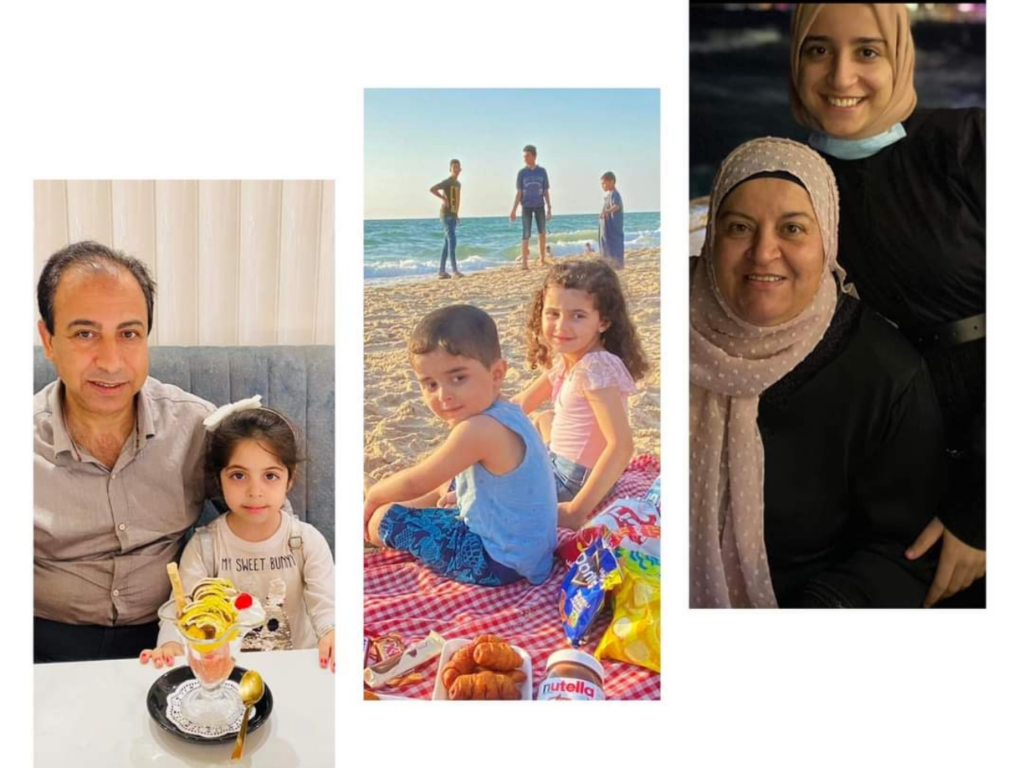
We arrived at Deir al-Balah, an agricultural area. Night came and the cold felt bone-chilling. In the middle of the field, with nothing to cover us or eat, we tried to sleep on the frozen sand as the sky became illuminated by the trail of missiles and their explosions. I broke down emotionally and began to cry. It hurt me to see my family like this. I spent the night praying to God to protect them until the sun appeared on the horizon.
From there, we moved on, muscles numb and heartbroken, toward Rafah. We found a car to take us, and I encountered the greed of men, which surfaces in any situation. A trip that would normally cost about $30 cost us $350.
War profiteering: Tents in Rafah now cost up to 500 dinars
In Rafah, a tent would cost us another $500. Nevertheless, we felt safe and that was all I cared about. From there, I made a decision to say goodbye and return to the camp to cover the events with my camera. Saying farewell to my surviving family left a deep wound in me, like a gash across my soul. I knew it could be the last time I saw them, and it felt like a last goodbye, but duty called.
I felt the need to show the world what was happening. Sadly, today I think the world doesn’t care at all. Days went on, and I constantly risked my life. Shelling and shooting surrounded me, but I kept taking photos until one day I lost everything. A bomb explosion threw me into the air, shattering my camera, phone, and laptop. I lived, but from then on, I could do nothing more than survive. I had no dreams or purpose left on the horizon.
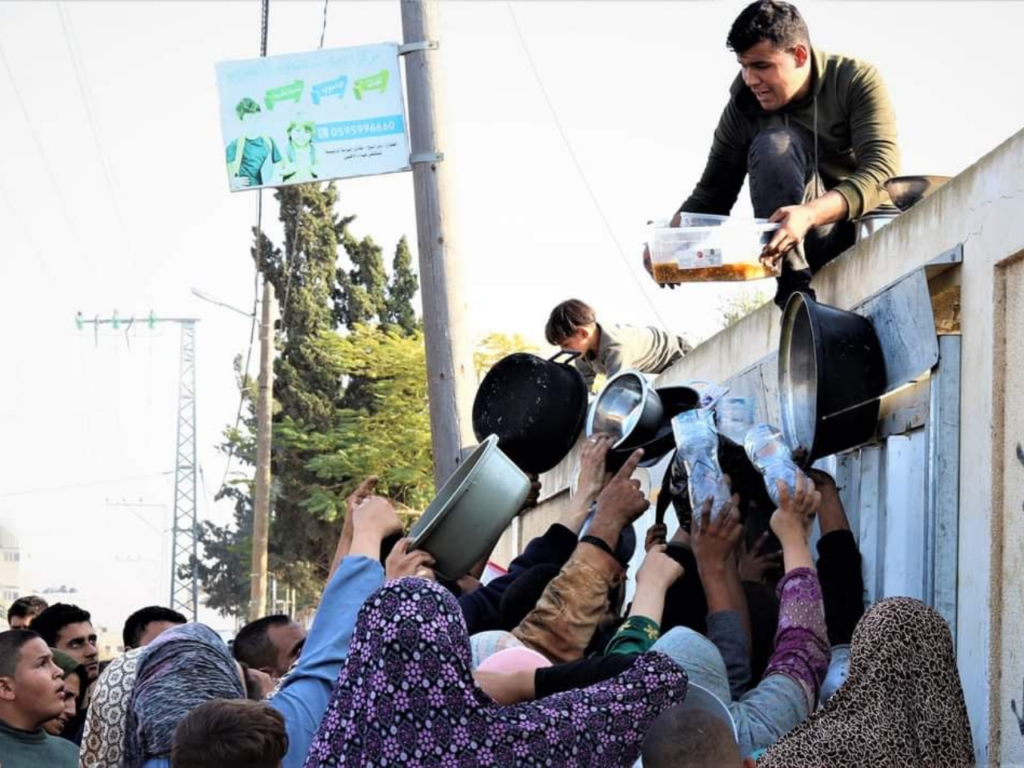
The feeling of loss is indescribable. I lost people, places, and everything a person can lose. It makes me cry suddenly, at any time. Memories rush into my mind, and I feel like screaming and crying, yet I don’t because I simply have no strength. “Why is it all gone?” I ask myself as I try to resurrect beautiful memories into the horrible present. I look around and see only destruction.
I often wonder, “Why all this vengeance against us?” I will never get used to this scene. Each new explosion and each death deliver agonizing anguish. The days become exhausting and hard. The arrival of summer only worsens the situation. Oppressive heat and rotting garbage fill the air with stench. We face insects everywhere.
Enduring life in Gaza today
Life in Gaza today feels unbearable. With no electricity and continuous water cuts, I shower less. Inflammation, itchiness, and disease invade my body. The relentless noise of 24-hour reconnaissance planes overhead feels maddening. It penetrates my brain, preventing me from thinking about anything else. The food availability is terrible. We rely on canned goods and rancid-tasting legumes. Traders exploit us, charging exorbitant prices.
This food causes me gastroenteritis and worms. I lost weight and with lack of essential nutrients, it leaves me more and more tired. At 33, I feel like an old man. Gaza’s economic crisis rapidly drained my savings. Merchants exploit the situation, taking an extra 25 percent on each money transfer. Now, I have just one and a half dollars left in my account. Without funds, I can’t continue my work as a photographer.
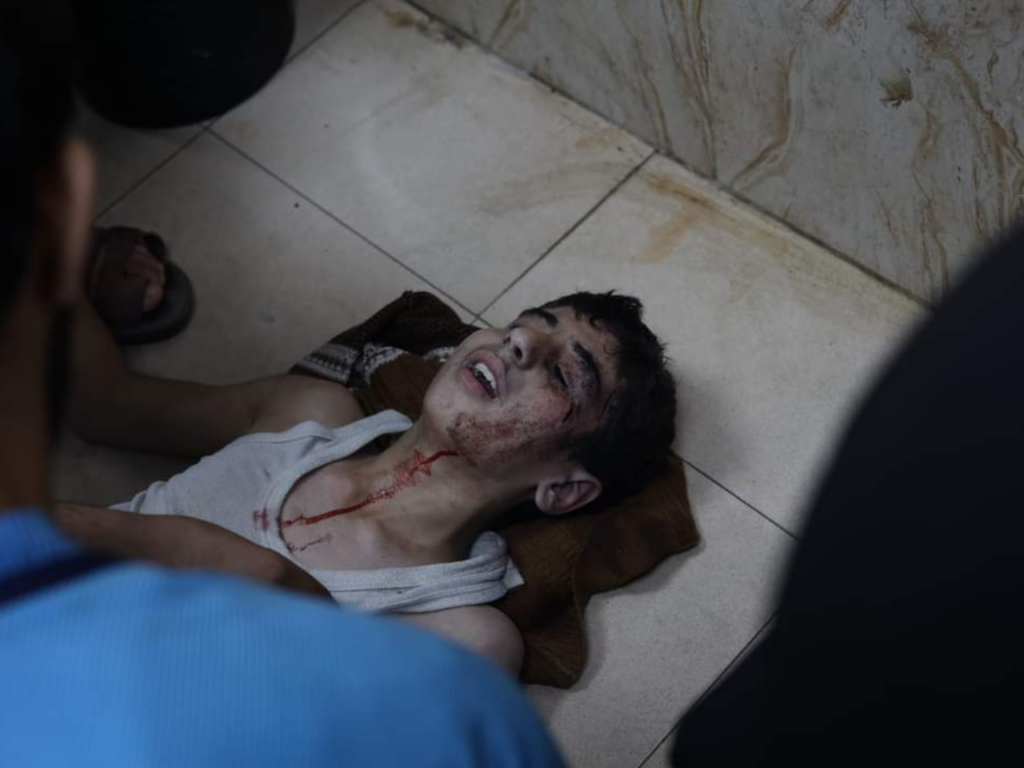
I do not feel afraid of death. When a missile hits, I feel nothing. My soul will ascend in peace to its Creator. What scares me most is waking up in the rubble, unable to breathe, see, or save myself and those around me. I fear not knowing who remains alive and who was martyred. Mainly, I live in fear of injuries that will make this hell even worse.
I feel no peace, even in sleep. Going to bed amidst the sound of shelling, I await the next missile. Often, I dream of terrifying scenarios, living amongst death every day. My only hope remains in God. Yet, even if the war ends, nothing will ever be the same. I feel broken and unable to heal. When you lose everything, you feel nothing. The future for me simply signifies more pain. Every question reminds me of something painful I try to forget. Every day I wake up crying, realizing the horror of this reality.

